Growing indoor plants in water is a simple and low-maintenance way to add greenery to your home. Not only does it bring a touch of nature indoors, but it also improves air quality and creates a relaxing ambiance. Here are 10 of the best indoor plants that thrive when grown in water.
1. Lucky Bamboo
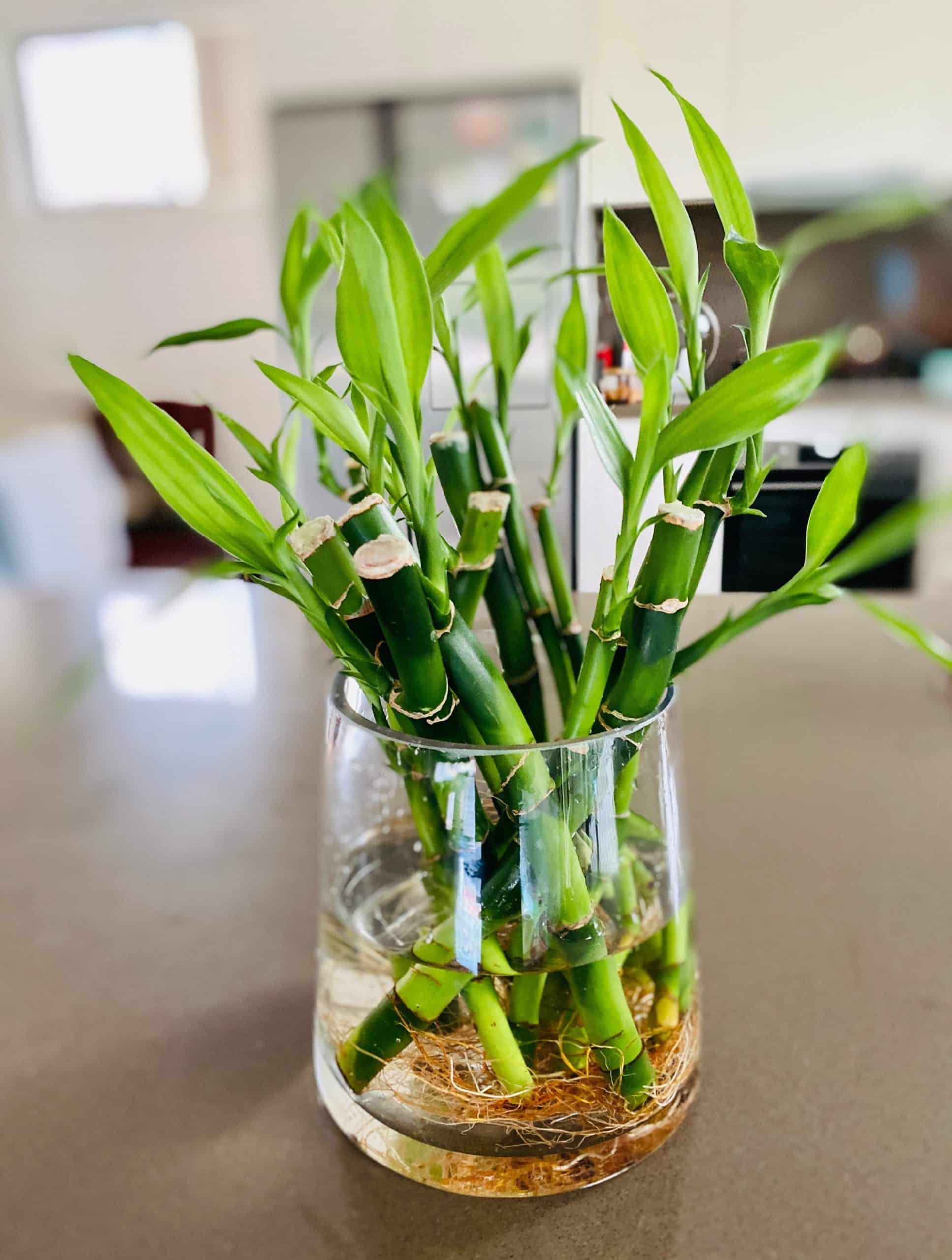
Lucky bamboo is one of the easiest plants to grow in water. It requires little sunlight and can be grown in a vase filled with water. Change the water every two weeks to keep it fresh and add a few drops of liquid fertilizer occasionally.
2. Pothos or Devils Ivy
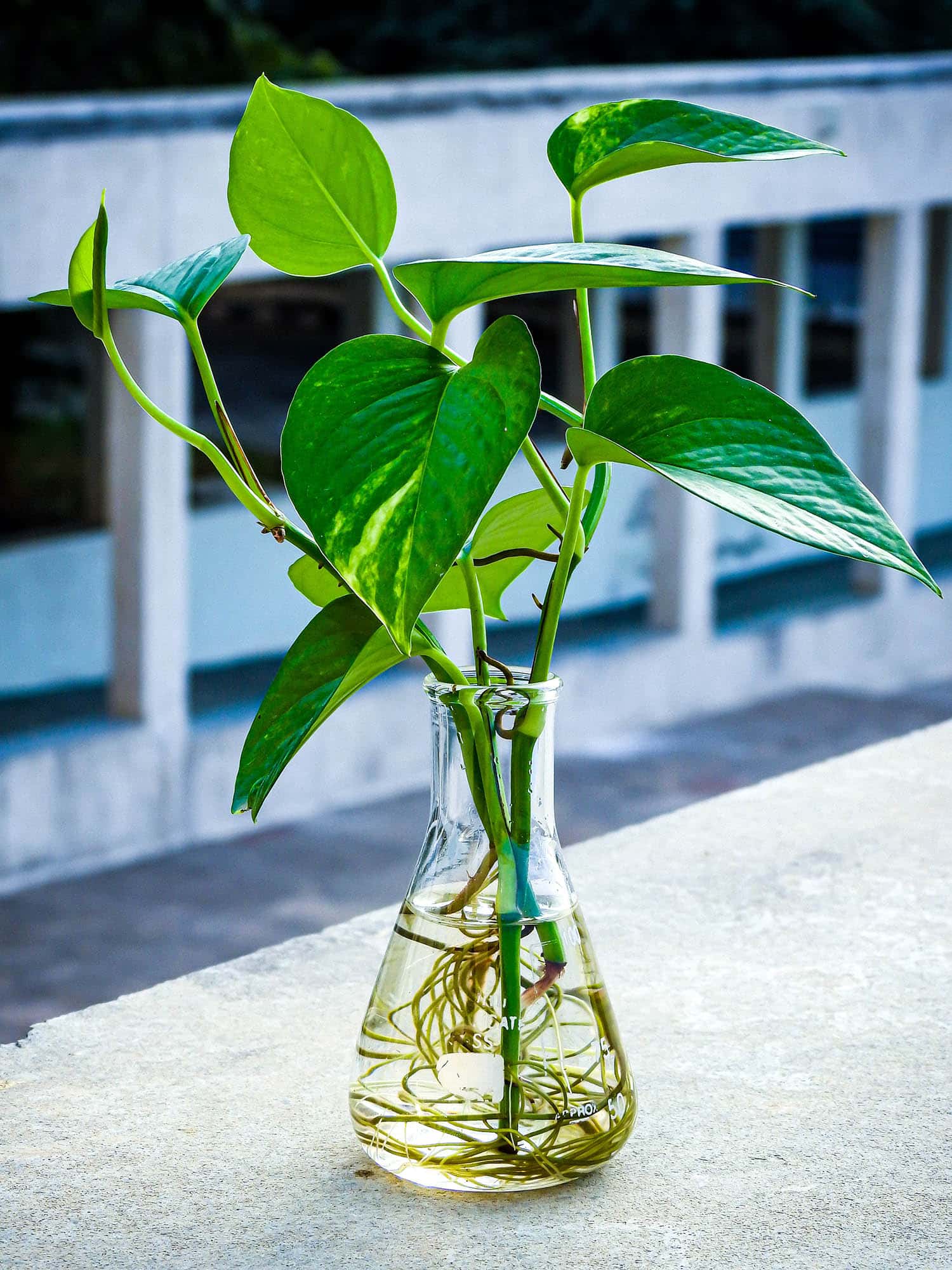
Pothos, also known as devil’s ivy, is a popular choice for indoor water gardens. It has attractive heart-shaped leaves and can tolerate low light conditions. Simply place cuttings in a jar of water and watch them root and grow.
3. Spider Plant:
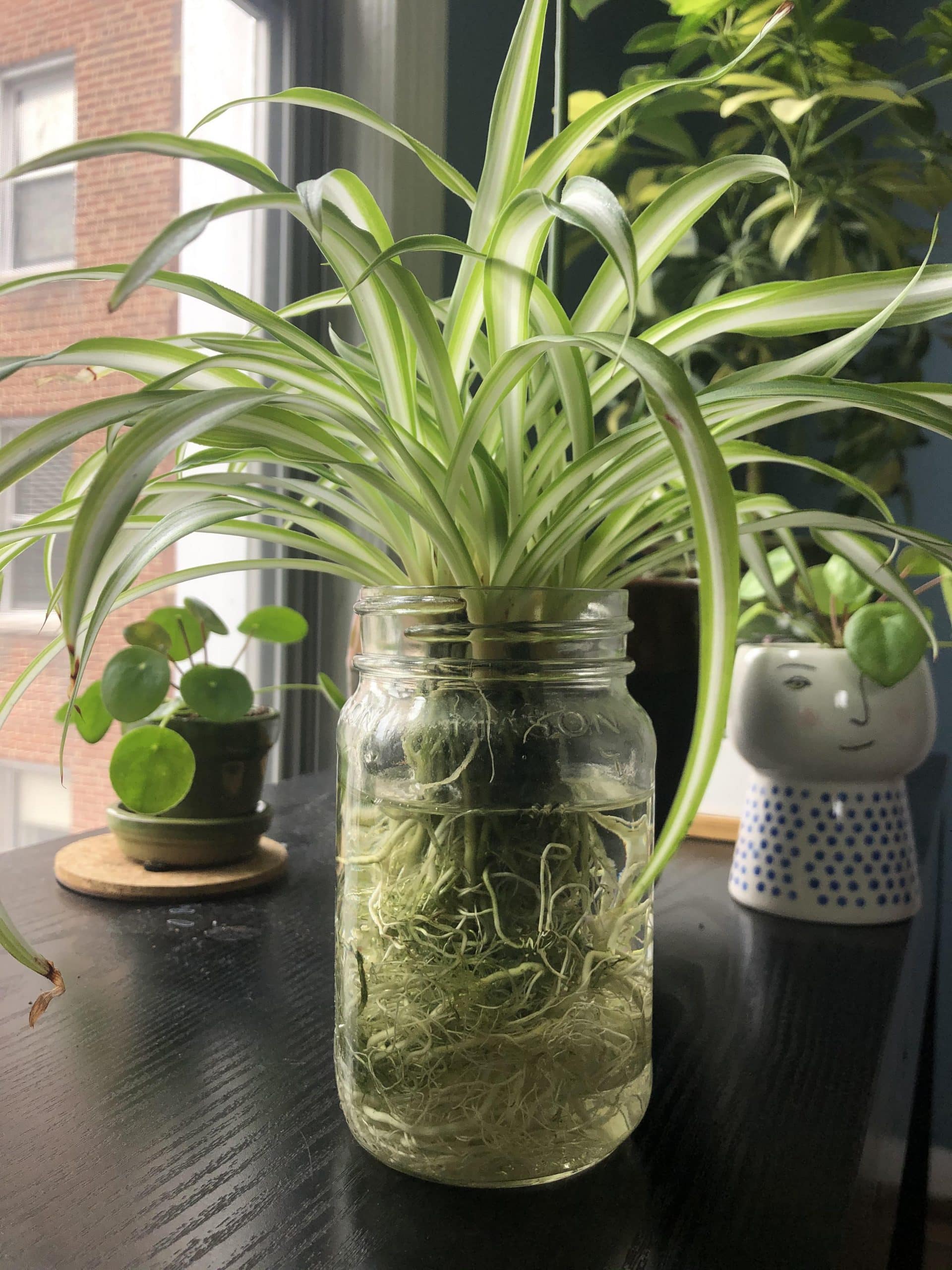
Spider plants are resilient and easy to care for, making them perfect for beginners. Place spider plant pups in a container filled with water and watch as they produce cascading foliage.
4. Philodendron
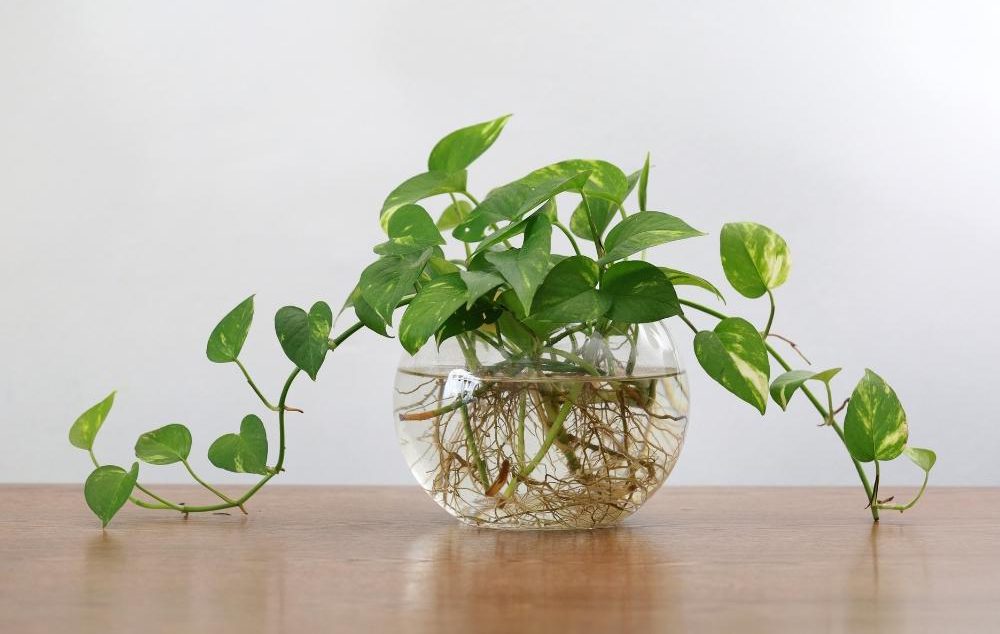
Philodendrons come in various shapes and sizes, making them versatile for indoor water gardens. Place cuttings in water, ensuring that at least one node is submerged, and watch them grow roots within a few weeks.
5. Chinese Evergreen
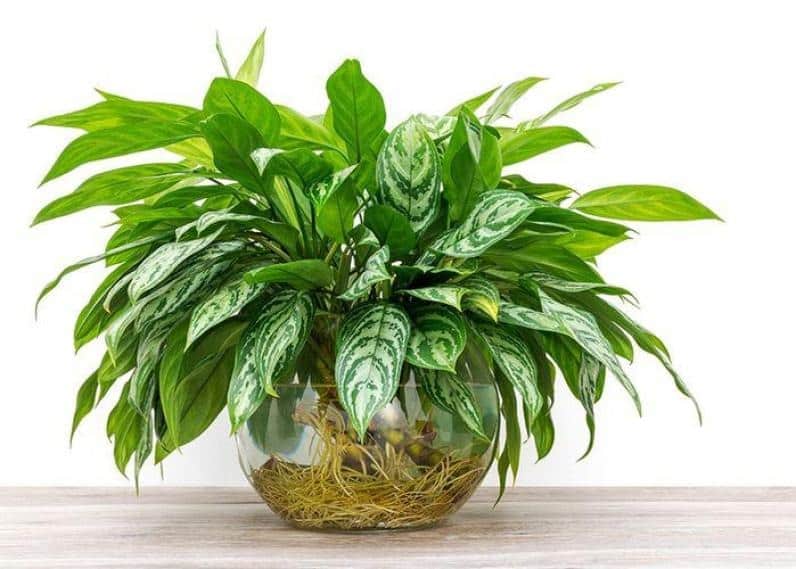
Chinese evergreen is a hardy plant that can thrive in water or soil. Place stem cuttings in a vase of water, making sure to change the water every two weeks. Roots will begin to form, and soon you’ll have a beautiful new plant.
6. Peace Lily
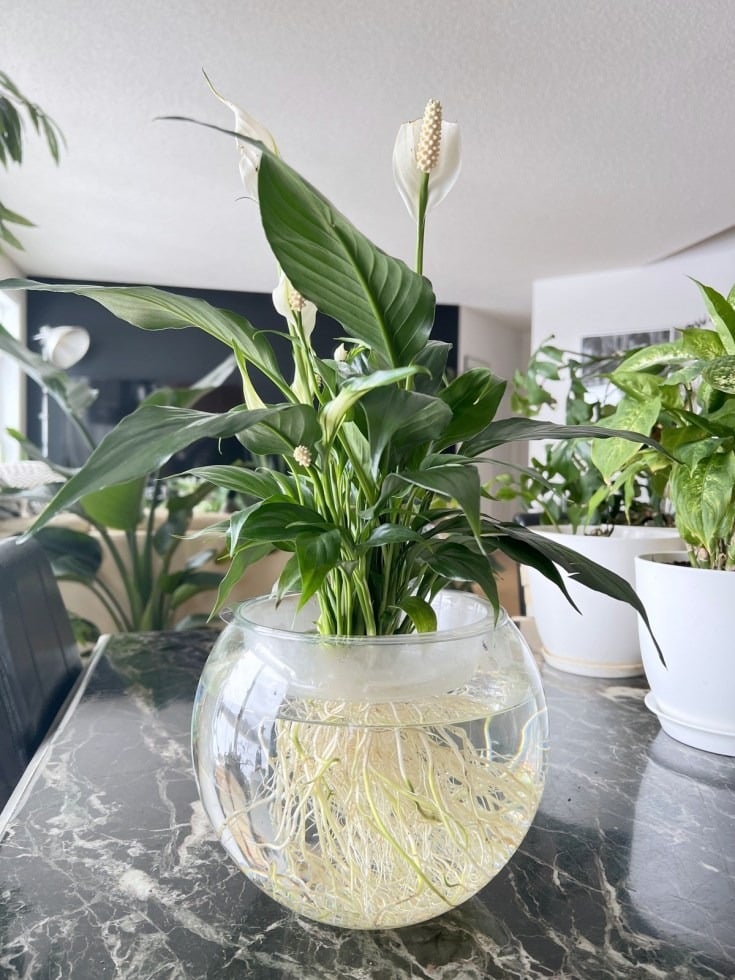
Peace lilies are known for their elegant white flowers and air-purifying properties. While they prefer soil, peace lilies can also be grown in water. Place a cutting in a container filled with water and enjoy its graceful foliage.
7. Arrowhead Plant
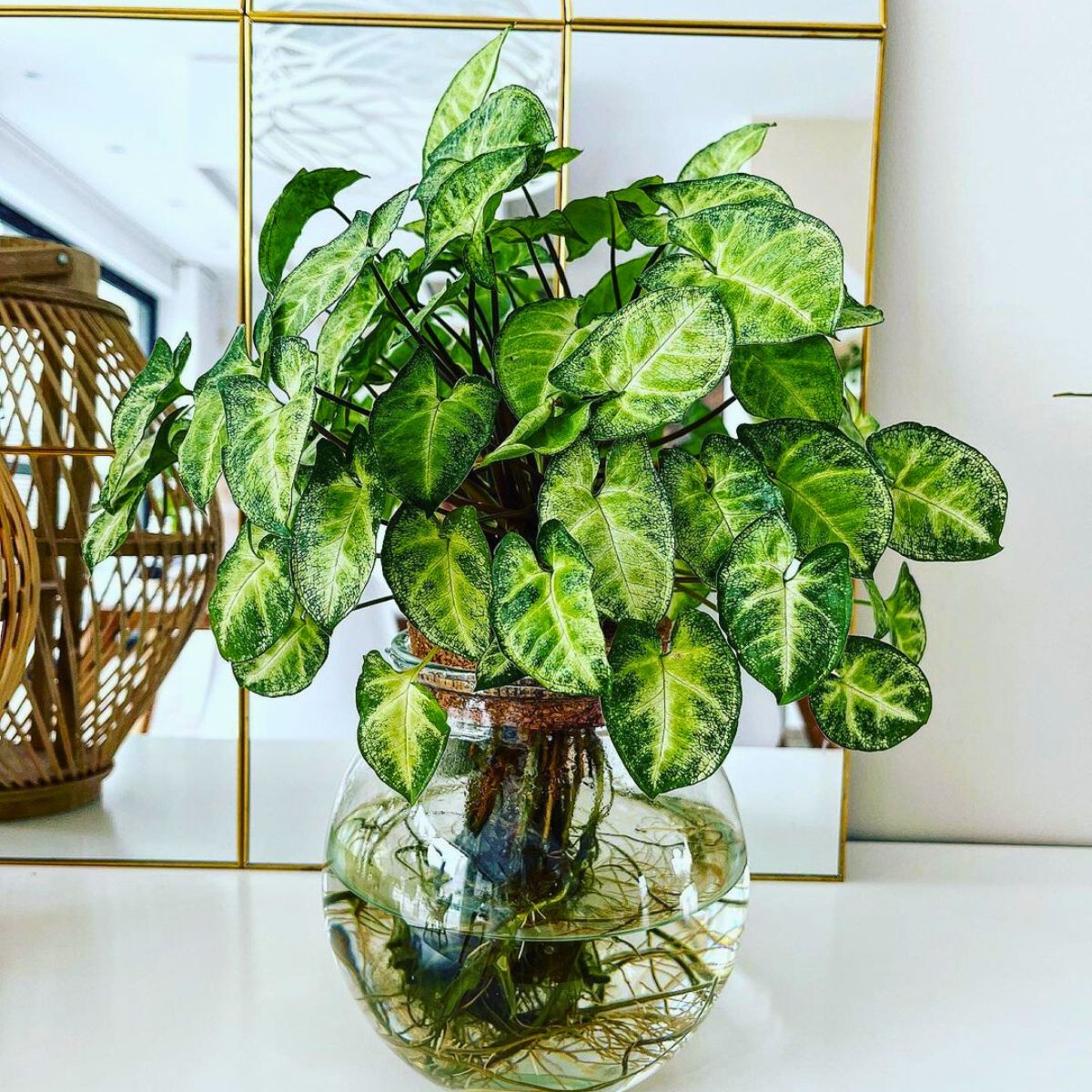
Arrowhead plants, also known as syngoniums, are easy to propagate in water. Cut a stem with several nodes and place it in a jar of water. As roots develop, you’ll witness new leaves unfurling.
8. English Ivy
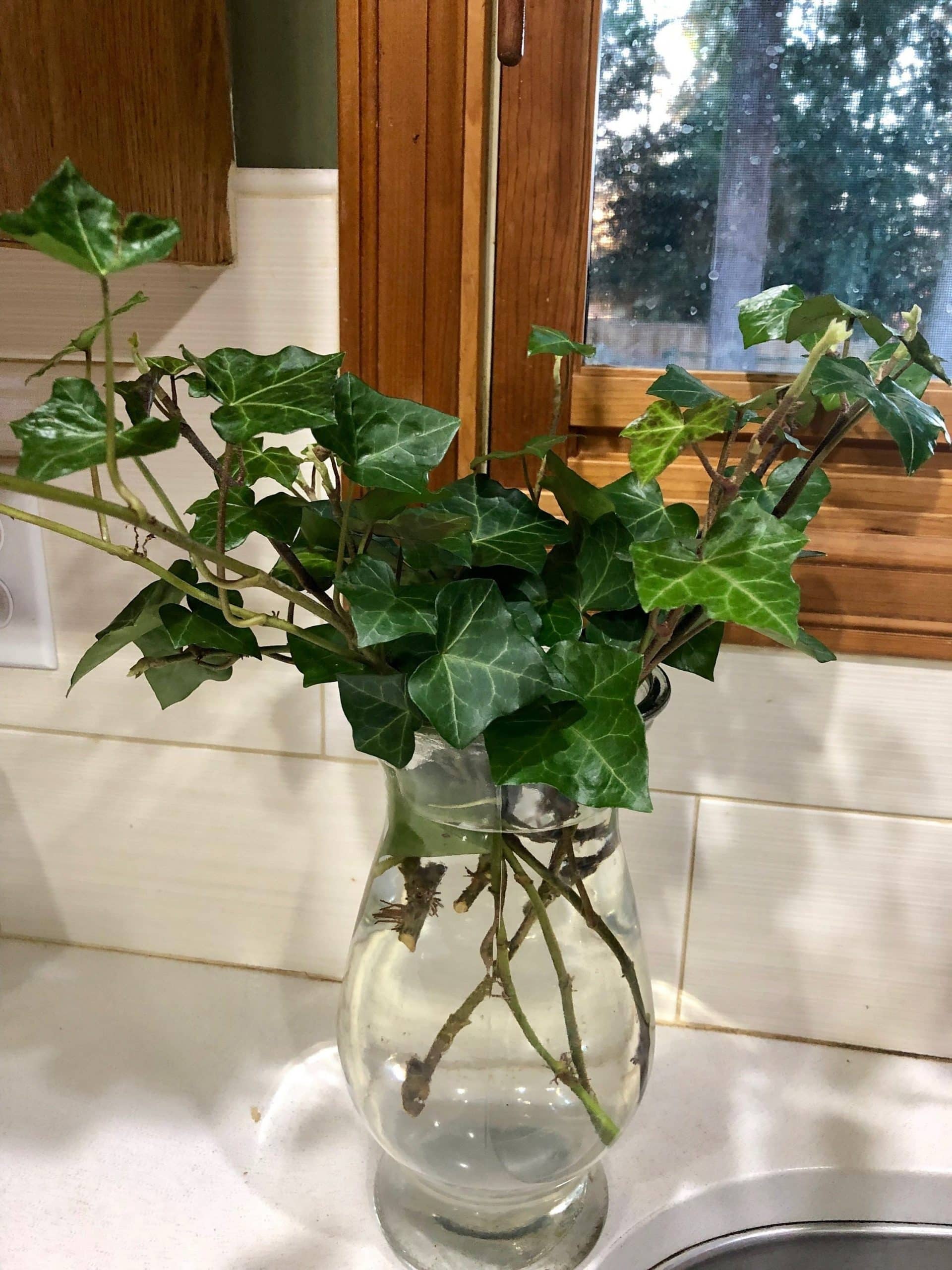
English ivy is a classic choice for indoor water gardens. Cuttings placed in water will quickly develop roots, and soon you’ll have cascading vines to adorn your home.
9. Wandering Jew
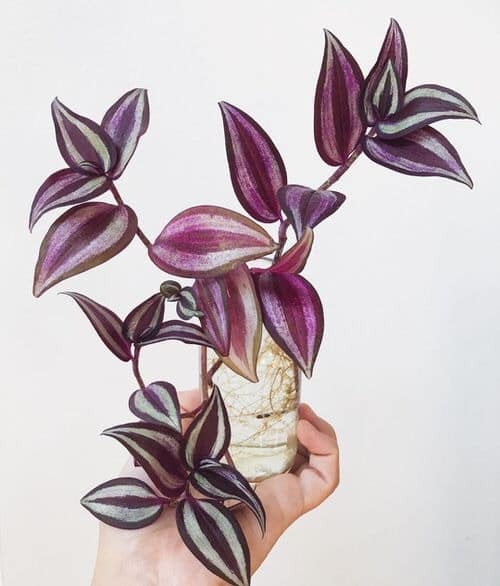
Wandering Jew plants add a pop of color to any indoor space with their vibrant foliage. Simply place stem cuttings in water, and within a few weeks, you’ll have new plants ready to be potted.
10. Delicious Monster
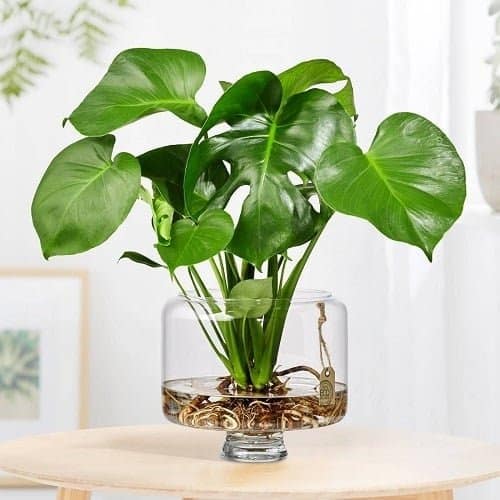
The Delicious Monster is a great houseplant choice for water growing. It can thrive in water for quite a while. Like the Split Leaf Philodendron, it looks stunning in a big vase on a table. Its large, elegant leaves add charm to any room, whether it’s at home or the office.
HOW TO GROW PLANTS IN WATER?
Before starting to grow plants in water, there are a few important things to think about. These are similar to what you’d consider when growing plants in soil or in a garden. Let’s take a closer look at these:
1. Light:
Check what kind of light your chosen plant needs and place it accordingly. While it’s nice to see the roots when growing in water, be careful with direct sunlight, especially if you’re using a glass container. Direct sunlight can make the water too hot and harm your plant’s delicate roots. So, it’s best to avoid placing your plant in direct sunlight as much as possible.
2. Fertilizing:
Unlike soil, water doesn’t provide nutrients to your plant. That’s why it’s crucial to regularly fertilize your water-grown plant to keep it healthy and strong.
3. Temperature:
Plants, like us, prefer stable temperatures. Choose a spot that provides your plant with the right temperature range and keeps it consistent. This helps prevent the roots from getting too hot or too cold.
4. Water Change:
Just like plants in soil need watering, water-grown plants need fresh water too! Change the water ideally once a week to keep it oxygenated and prevent algae buildup, which can reduce oxygen levels. Always use room temperature water to avoid shocking your plant.
5. Water Quality:
It’s recommended to use water with fewer minerals, like filtered or rainwater, because tap water contains chlorine, which can harm your plants. You can also let tap water sit overnight to let the chlorine evaporate before using it.
Growing indoor plants in water is a rewarding and enjoyable experience. With the right plants and a little care, you can create a lush oasis in your home while improving air quality and adding a touch of nature to your surroundings. Experiment with different plants and containers to find the perfect combination for your indoor water garden.